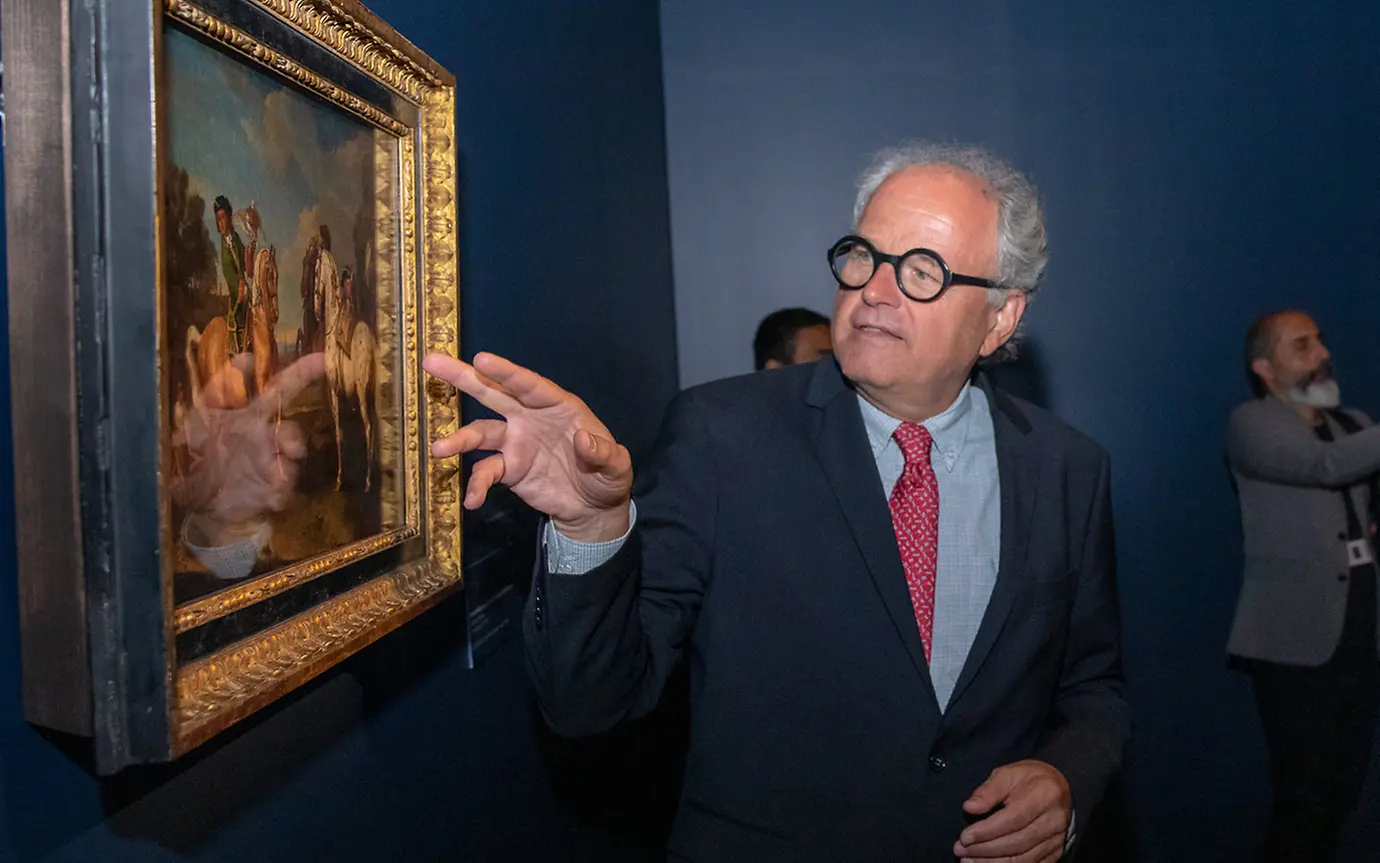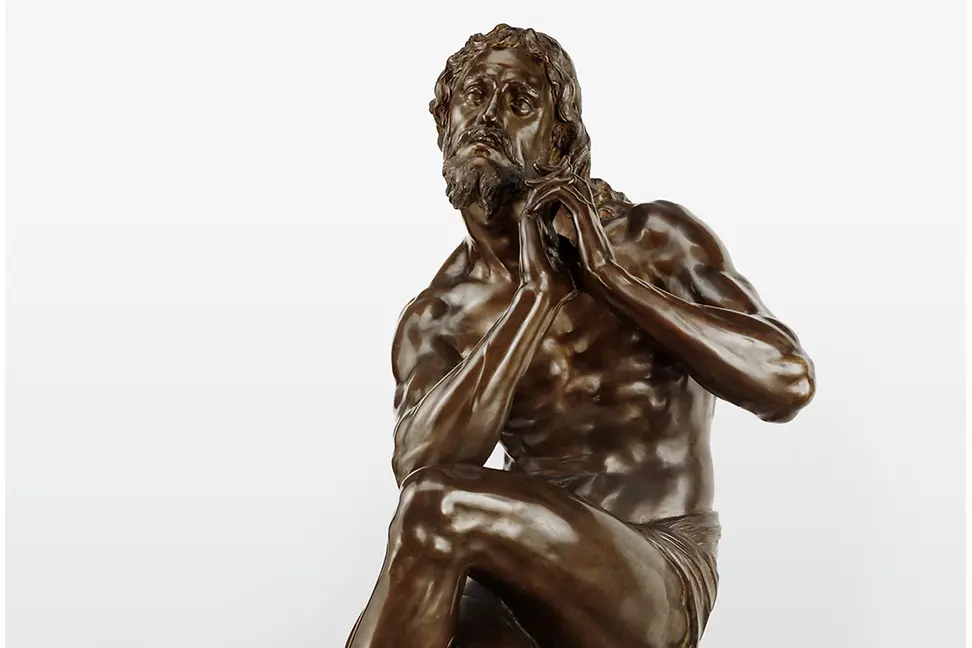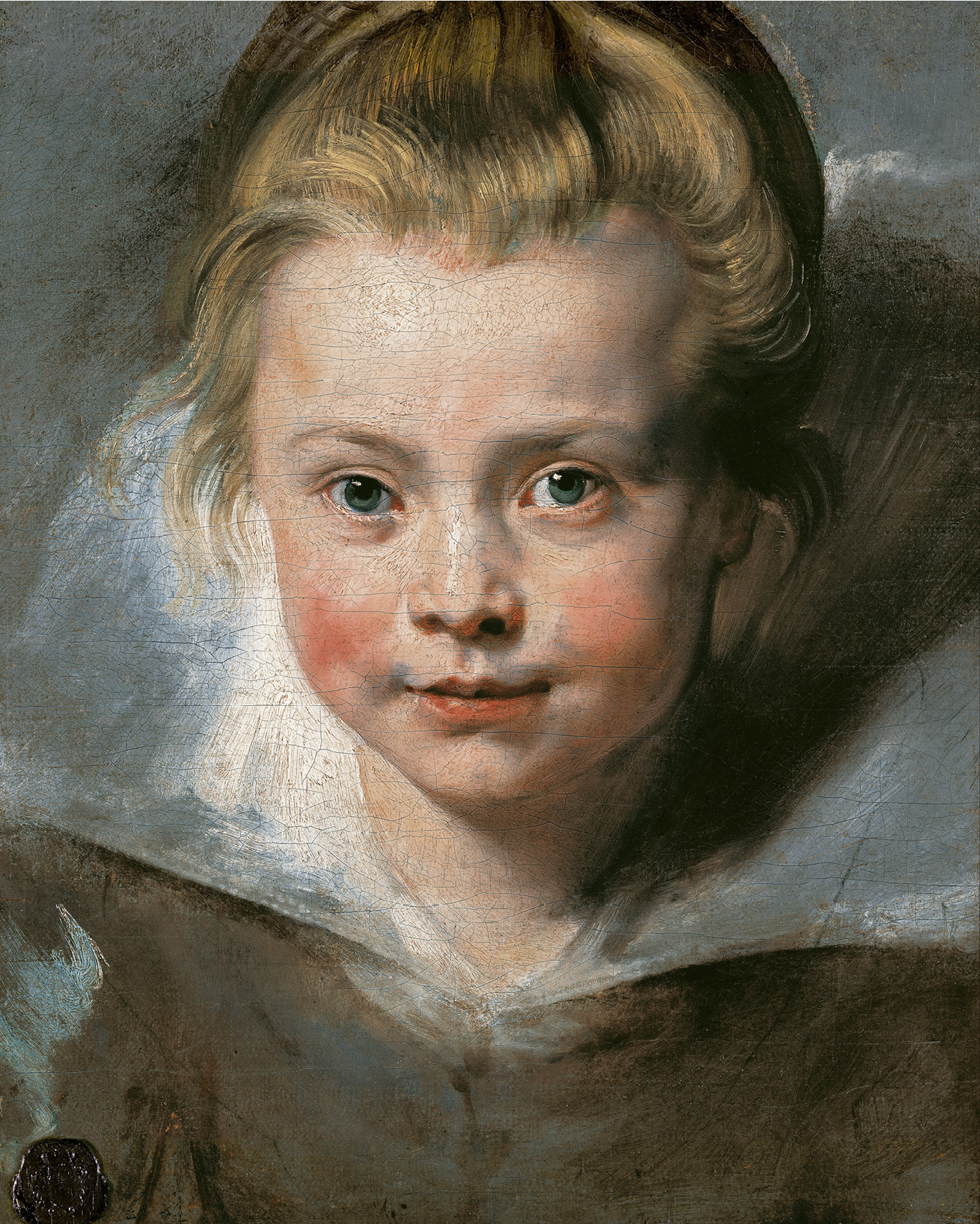The Collections of the Prince von und zu Liechtenstein are one of the most important private art collections in the world and have been assembled over several centuries. Today, the Collections hold around 700 sculptures and 1,600 paintings, including works by Raphael, Peter Paul Rubens, Anthony van Dyck and Rembrandt.

We speak to Dr. Johann Kräftner, who has been the Director of the Princely Collections since 2001 and is retiring this year, to find out more about the art collection LGT is privileged to have access to.
Kräftner: The Princely Collections are the only private art collection whose origins go back more than four hundred years and which has been formed and constantly expanded over this long period. Each of the reigning princes of the House of Liechtenstein has contributed to its contents, and it is still owned by the family today.
This long tradition has helped to ensure a collection of the highest quality.
It also guarantees the unique state of preservation of the objects, which, often acquired from the artist, have not passed continuously through new hands, losing quality through a multitude of restorations.
Its most important holdings are presented to the public permanently in the two Viennese Palais and temporarily in major exhibitions across the world. An active acquisition policy, which has resulted in an increase of more than a thousand objects in the last two decades alone, and its presence in exhibitions make it a living collection.
Having worked in and for such a collection for more than 20 years, there are many works of art that have grown on me. On the one hand, there are objects that have been in the collection forever, such as the collection’s first documented commissioned work, Christ in Distress by Adrian de Fries. Only recently, it has been the starting point of an exhibition on the Princely Bronzes in the Garden Palace, a work of art which cannot be surpassed by any other in its quality and emotional content.

At the other end of the scale are works that have only recently entered the Collections, such as a Portrait of an Unknown Man by El Greco, the only work by this master ever in a Viennese collection, or the heavy fire-gilded Bust of the Roman emperor Marcus Aurelius, also a great crowd puller.
Of course, we must not forget the works that have long given this collection its unmistakable profile, the works of Peter Paul Rubens, the portrait of his daughter Clara Serena Rubens, the double portrait of his sons Nicholas and Albert, or the equally fabulous Venus looking out of the mirror with her servant.

These highlights are strung together like jewels on a pearl necklace. The first was the return of the Princely Collections to the family's Garden Palace in Vienna, the restoration of which I had been entrusted with as an architect back in 1999. For a long time, this return was unthinkable for a variety of reasons and finally became reality in 2004 with the reopening of the museum.
The next stage was then the reopening of the City Palace of the Princely Family in Bankgasse, which was restored in all its spectacular splendour. The Palace’s reopening made permanently accessible the more recent works of the art collection, the works of Classicism, Biedermeier and Historicism, on a gallery floor that also includes the magnificent period rooms.
And it was necessary to put the collection itself in order. A large number of objects that were merely burdensome were sold in two large auctions in London and in Amsterdam. Meanwhile, the collections were rounded out and raised to a new level through important new acquisitions.
Even the ‘side show’ of the furniture collection was raised from an accumulation of many insignificant pieces of furniture to a completely different level through the purchase of high-calibre pieces – just think of the Badminton Cabinet acquired in 2004.
Also among my career highlights are the many exhibitions all over the world I have been able to organise, with the help of LGT, bringing these hidden treasures to the attention of a globally interested public. The great houses in Paris, Milan, Florence, Moscow, Beijing, Shanghai, Taipei, Seoul or Tokyo have allowed people around the world to marvel at these works in ever-changing compositions. In addition, there have been many individual loans, which have more than once become the poster motif of important exhibitions.
There have been many individual loans, which have more than once become the poster motif of important exhibitions.
Two years ago, with the feature of MARCH AT THE PALACE, I was able to open a format that will continue to bring for a month the Princely Collections closer to the Viennese public with a precisely chosen theme. In 2022, with free admission, visitors were introduced to the dazzling personality of Prince Joseph Wenzel I. of Liechtenstein – a military man, diplomat and art collector. This was followed in 2023 by a show on the Princely Bronze Collection under the title Cast for Eternity, supplemented as the previous year's exhibition by spectacular loans from Europe and overseas.
The Princely Family remains fully committed to the collection and its further development. It is now in the hands of my successor to pick up these threads and weave them further. Tidying up is one thing. Making the existing material accessible, processing it scientifically and sharing the results to as wide an audience as possible is certainly a task for the future.
Last June, work began on a long-overdue restoration of the Decius Mus cycle by Peter Paul Rubens; the first restored painting will soon return to the gallery, but the work will take several more years.
The art market is full of exciting, great objects and I hope that the expansion of the collections through new acquisitions will remain a priority in the future.
Through our exhibitions, we have brought the collections to important parts of the world, but I am almost willing to say the world of yesterday. This world has changed in the last few years, it has become a different one. To some places where we could celebrate incredible successes, the collections will no longer be able or willing to return. Instead, there are completely different places, brand new museums, new worlds that are curious about what is hidden in the great princely treasure chest. I am sure that the doors to the Princely Collections will open there as well.
The Princely Collections are open to all. Some works from the collections can be viewed in the Liechtenstein Palaces (the City Palace and the Garden Palace) in Vienna, as part of the permanent collections. Other selected pieces are shown on loan in other museums or at special exhibitions. You can also visit the Princely Collections online, where you can marvel at about a third of their works.
This communication is provided for information purposes only. The information presented herein provides a general update on market conditions and is not intended and should not be construed as an offer, invitation, solicitation or recommendation to buy or sell any specific investment or participate in any investment (or other) strategy. The subject of the communication is not a regulated investment. Past performance is not an indication of future performance and the value of investments and the income derived from them may fluctuate and you may not receive back the amount you originally invest. Although this document has been prepared on the basis of information we believe to be reliable, LGT Wealth Management UK LLP gives no representation or warranty in relation to the accuracy or completeness of the information presented herein. The information presented herein does not provide sufficient information on which to make an informed investment decision. No liability is accepted whatsoever by LGT Wealth Management UK LLP, employees and associated companies for any direct or consequential loss arising from this document.
LGT Wealth Management UK LLP is authorised and regulated by the Financial Conduct Authority in the United Kingdom.